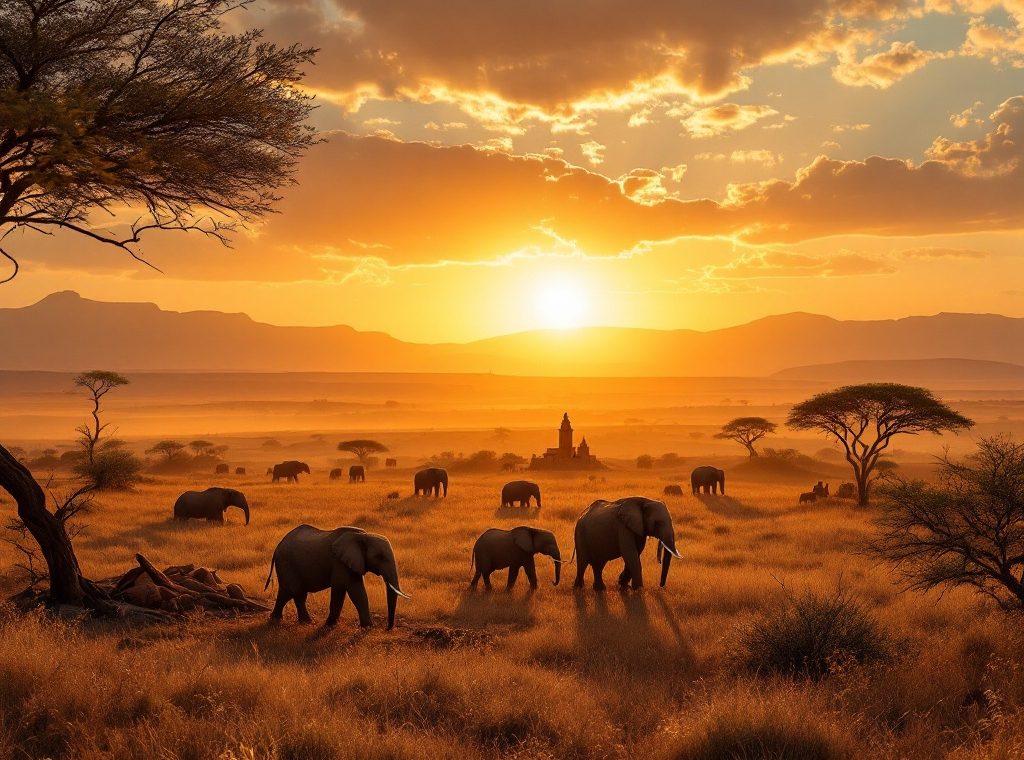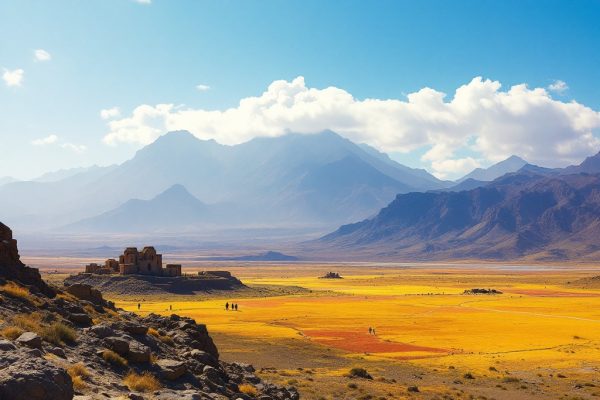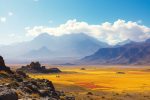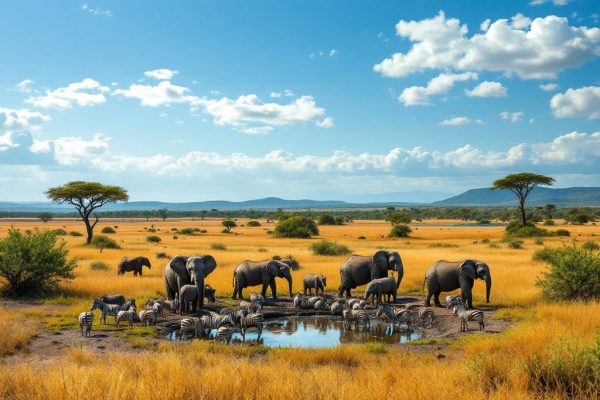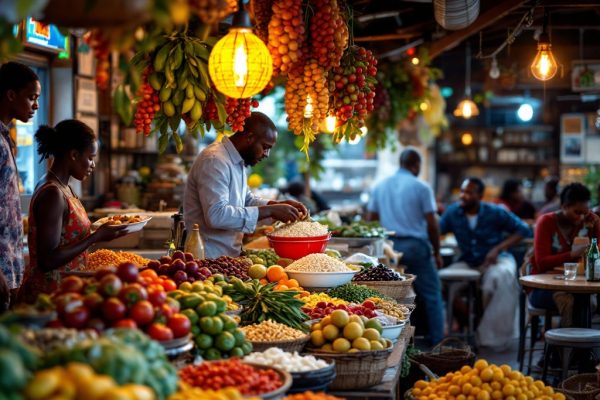How Much Does It Cost to Travel to Africa: Prepare Yourself
Dreaming of an African adventure? Discover the diverse landscapes and wildlife, from the savannas of Kenya to the vibrant culture of Morocco. This comprehensive guide unveils the costs of traveling to Africa, covering everything from flights and accommodation (starting from $10/night!) to safari experiences (as low as $125/night!) and local transportation. Learn how to budget effectively, compare prices, and plan your dream trip without breaking the bank. Start exploring Africa today!
Important information
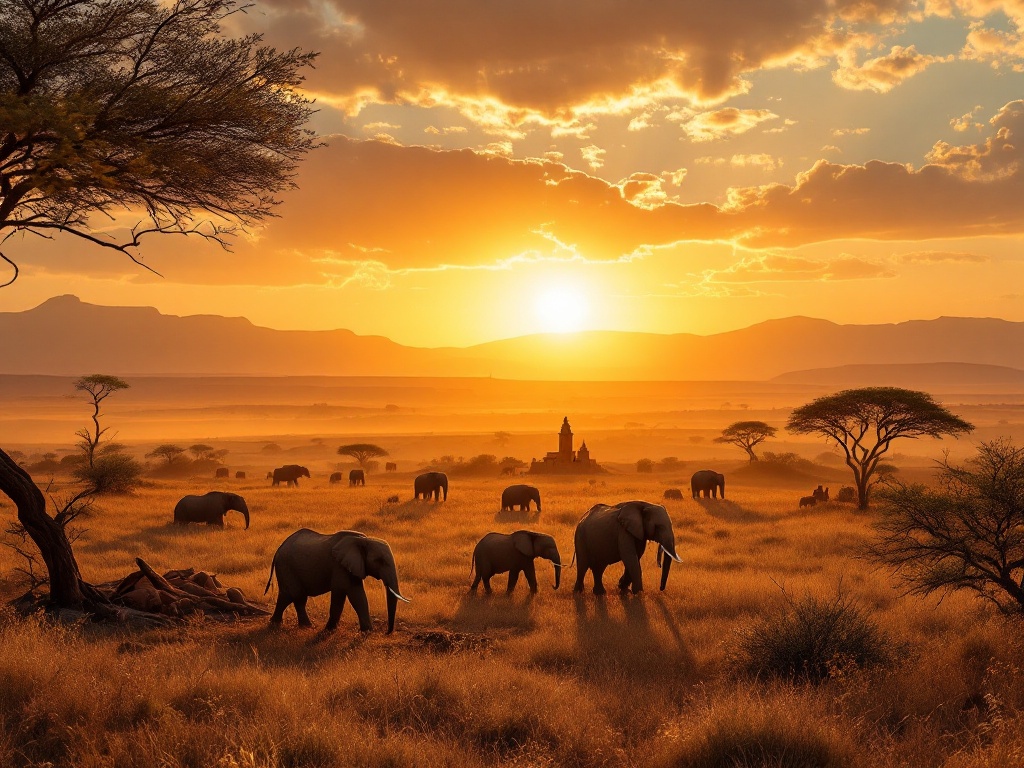
- Flights from North America to Africa typically cost between $1,800 and $2,500 per person. Flights within Africa range from $100 to $400 for regional travel and $100 to $300 for domestic.
- Accommodation costs vary widely. Budget-friendly options like hostels and guesthouses range from $10 to $30 per night. Mid-range hotels cost $50 to $150 per night, while luxury lodges can exceed $1,000, especially during peak season.
- Safaris are a major expense, ranging from $125 to $1,500 per person per night. Budget safaris often involve camping or basic lodges, while luxury safaris offer premium accommodations, private guides, and exclusive activities.
- Food costs can be managed effectively. Street food and local eateries offer meals for $1 to $5. Mid-range restaurants typically charge $10 to $30 per meal, and fine dining can exceed $50.
- Additional expenses to consider include visas, national park fees (typically $20 to $100 per person per day), travel insurance ($50 to $150), and optional excursions and tours ($50 to $150 per day).
Understanding the Cost of Traveling to Africa
Planning your trip can be a breeze with these helpful tips. First, determine your destination and travel dates. Next, research and book flights and accommodations, considering your budget and preferences. Then, create a rough itinerary, including key attractions and activities. Don’t forget to factor in travel time between locations and allow for flexibility. Finally, pack accordingly, checking the weather forecast and any specific requirements for your destination, ensuring a smooth and enjoyable trip.
Factors Influencing Travel Expenses
Your dream safari destination influences the overall cost. Popular locations like South Africa and Kenya offer incredible wildlife viewing, but often come with a higher price tag. Venturing off the beaten path to less-visited countries can unlock significant savings.
Timing is key. Traveling during peak season translates to more expensive flights and accommodations. Consider your preferred tour style, too. Independent self-drive adventures are generally more budget-friendly, while guided tours typically come at a premium. Your choice of accommodation, from budget-friendly hostels to luxurious lodges, plays a major role in your overall safari expenses.
Flight Costs: Major Expense in African Travel
Planning your trip to Africa? Airfare can be a major expense, especially for long-haul flights from North America. But don’t worry, you can save money with a little planning. Here’s how: compare airlines for the best deals, be flexible with your travel dates to find lower fares, and book your flights in advance to secure the best prices.
Long-haul Flights: North America to Africa
Traveling from North America to Africa can be expensive, with flights often costing between $1,800 and $2,500 per person. This high airfare significantly increases the overall trip expense, which can range from $2,000 to $6,000 depending on the ticket type. Keep this cost in mind when budgeting for your African adventure.
Regional and Domestic Flights Within Africa
Air travel costs within Africa vary depending on whether you’re flying regionally or domestically. Regional flights, crossing country borders, typically cost between $100 and $400. Domestic flights within a single country are generally cheaper, usually ranging from $100 to $300. This price difference is an important factor to consider when budgeting, especially for trips that include multiple countries or regions. Booking your flights in advance can sometimes help you secure lower fares.
Accommodation Costs: Budget to Luxury Options
Budget-Friendly Stays
Hostels and guesthouses offer comfortable accommodations starting from $10 to $30 per night, making them ideal for budget-conscious travelers.
Mid-Range Comfort
Experience a balance of comfort and value with mid-range hotels, typically priced between $50 and $150 per night.
Luxury Escapes
Indulge in luxurious high-end hotels or unique safari lodges, with prices starting at $200 and potentially exceeding $1,000, especially during peak season.
Budget Accommodation: Affordable Stays
Planning an affordable African adventure? Consider these accommodation options:
Budget-Friendly Stays
Hostels and guesthouses offer immersive cultural experiences for just $10-$30 a night.
Mid-Range Comfort
For added comfort, mid-range hotels are available for $50-$150 per night.
Luxury Safari Lodges
If luxury is your priority, safari lodges offer unparalleled wildlife viewing, starting at $200 per night.
Mid-Range Accommodation: Balance of Comfort and Cost
Planning an African getaway and seeking comfortable yet budget-friendly accommodations? Mid-range options offer a pleasant balance of amenities and affordability, typically costing between $50 and $150 per night. Consider these excellent choices: guesthouses, boutique hotels, and charming lodges. Booking in advance, particularly during peak season, is highly recommended to secure your preferred lodging.
Luxury Accommodation: Premium Services
Experience the ultimate African luxury with unparalleled premium services. Imagine yourself unwinding in a private plunge pool, pampered by a personal butler. Enjoy gourmet meals tailored to your preferences. While nightly rates usually range from $150 to $500, some exclusive accommodations may exceed this for an even more extravagant experience. These premium amenities offer exceptional value. In addition to luxurious rooms, guests enjoy access to world-class spas and cutting-edge fitness centers. Curated excursions, such as thrilling safaris, are often included. These exceptional getaways are typically found in exclusive safari lodges and high-end resorts, promising an unforgettable African escape.
Safari Costs: A Significant Part of Your Budget
African safaris offer a wide range of experiences, with prices typically falling between $125 and $1,500 per person, per night. This cost variation depends on several factors, including your choice of accommodation, guiding services, and the activities included in your package. Careful research and comparing prices are essential for effective budgeting.
Budget-Friendly Safaris
Budget-conscious travelers can find safaris starting at $125 per night. These often feature simpler options like:
- camping,
- basic lodges.
Joining a group tour can also help lower costs by sharing expenses.
Luxury Safaris
Luxury safaris can cost upwards of $1,500 per night. These premium experiences provide:
- top-tier accommodations,
- private guides,
- exclusive access to secluded areas.
Expect gourmet meals, personalized itineraries, and extras like hot air balloon rides or walking safaris.
Understanding Safari Price Ranges
Safari costs vary significantly, from $300 to $1,500 per person per night. This price depends on factors such as accommodation quality and included services. Budget-friendly safaris start around $150 per day, while high-end options can reach thousands of dollars. Careful budget consideration is key to selecting the right safari experience.
Budget Safari
starting around $150 per day
Luxury Safari
can reach thousands of dollars
Budget-Friendly Safari Options
Surprisingly, self-drive safaris in Southern Africa can cost less than $150 per person daily. Guided options are also budget-friendly, at about $250 per day. This affordability opens up exciting safari adventures to travelers across various budget levels.
Luxury Safari Experiences: What to Expect
Experience the ultimate safari adventure with unparalleled service and personalized itineraries. While these exclusive journeys start at $1,000 per person per night, they offer a wealth of unforgettable experiences. A dedicated guide will accompany you, unlocking access to unique activities such as hot air balloon safaris over the savanna and exhilarating walking tours. Cultural immersion further enriches your journey, with visits to local villages offering deeper insights into the region.
Dining and Food Costs
Savory street food and local eateries are easy on the wallet, with meals often costing a mere $1 to $5. Imagine enjoying a flavorful tagine in Morocco or spicy suya in Nigeria. Local markets overflow with fresh produce, allowing you to prepare your own meals and further reduce expenses while savoring authentic flavors. This way, you’ll experience the true taste of a region and spend significantly less than in restaurants.For a mid-range dining experience, expect to pay between $10 and $30 per meal. Fine dining, however, can quickly escalate beyond $50, especially in tourist hotspots. To balance your budget and explore the diverse culinary landscape, consider a mix of dining options. Mid-range establishments often showcase regional specialties, while fine dining offers international fare or upscale versions of local dishes.
Street Food and Local Eateries: Cost-Effective Dining
Dining out in Colombia offers options for every budget. Street food and local eateries provide delicious meals for between $1 and $5. Mid-range restaurants are another choice, with prices typically ranging from $10 to $30. For special occasions, upscale dining is available, where meals can cost over $50. Local markets are great for budget-friendly meals, while tourist areas tend to have higher prices. A reasonable daily food budget is between $10 and $50, depending on your dining preferences. Exploring local cuisine is a rewarding culinary adventure.
Mid-Range and Fine Dining Options
Restaurant meal costs typically range from $20 to $50. However, upscale dining experiences can significantly increase this expense, starting at $50 and potentially exceeding $100 per meal. Remember to factor these costs into your travel budget.
Transportation Costs: Navigating Africa
Getting around locally in Africa is inexpensive. Public transport options like buses and minibuses (matatus) are readily available and usually cost between $1 and $10 per ride. For more freedom and flexibility, consider renting a car. Car rentals typically range from $30 to $70 per day.
Factors Affecting Car Rental Prices
- vehicle type,
- rental length,
- insurance coverage.
Tips for Saving on Car Rentals
A larger vehicle rented for a longer duration with comprehensive insurance will naturally have a higher price tag. Look for discounts; some companies offer lower rates for extended rental periods.
Local Transport: Affordable Options
Public transportation offers budget-friendly travel across African cities and towns. Local buses, matatus (minibuses), and trains typically cost between $1 and $10. For longer journeys between cities, long-distance buses are a convenient option, priced from $10 to $50. Ride-sharing services and bicycle rentals provide additional cost-effective choices for shorter trips.
Car Rentals: Exploring Independently
Explore Africa at your own pace with a rental car. Daily rates typically range from $30 to $70, empowering you to create a personalized itinerary and uncover hidden gems off the beaten track. Experience the freedom to discover the heart of Africa, far from the usual tourist crowds.
Additional Travel Expenses to Consider
Planning your African adventure requires careful budgeting. Visas, national park fees, and travel insurance are essential costs. Travel insurance protects you from unforeseen medical emergencies or trip cancellations. Consider enhancing your trip with excursions and tours. Prices for these vary significantly, so research beforehand to find activities that fit your interests and budget. A walking safari offers a budget-friendly way to explore, while a hot air balloon ride provides a luxurious experience. Local guides can add depth to your adventure with their unique insights.
Visa and National Park Fees
Visa expenses depend on your nationality and destination, so plan accordingly. Daily national park fees generally range from $20 to $100 per person, supporting essential conservation efforts and park maintenance. Examples of parks with these fees include Kruger (South Africa), Serengeti (Tanzania), and Masai Mara (Kenya). Remember to include these costs in your travel budget.
Comprehensive Travel Insurance
Travel insurance is a smart investment for your African adventure, typically costing between $50 and $150. It protects you from unexpected problems like trip cancellations, medical emergencies, and lost luggage, providing valuable peace of mind.
Excursions and Tours: Enhancing Your Experience
Enhance your travels with enriching tours and excursions. These typically cost between $50 and $150 per day. Remember to factor these costs into your travel budget.
Currency Exchange Rates and Their Impact
Planning an African adventure? Keep a close eye on exchange rates, as they significantly impact your travel budget. Understanding local currencies is crucial for smart spending. A strong home currency stretches your travel dollars much further, giving you more bang for your buck.
Strong Home Currency
A strong home currency compared to the local currency boosts your spending power. For instance, a strong dollar compared to the South African Rand increases your purchasing power in South Africa. This means you can enjoy more experiences, purchase more souvenirs, or indulge in finer dining without exceeding your budget.
Weak Home Currency
Conversely, a weak home currency can make your trip significantly more expensive. If the dollar weakens against the Kenyan Shilling, for example, your Kenyan getaway will cost more. This might require you to adjust your spending habits, reduce the length of your stay, or compromise on certain activities.
Monitoring exchange rates before and during your trip is essential for managing expenses effectively.
Travel Planning Tips for Budget-Conscious Travelers
Plan your trip strategically by researching flight and hotel costs. Comparing various options helps secure the best deals. Traveling during the off-season often yields lower prices, though be ready for unpredictable weather.
Utilize public transportation, a frequently cheaper alternative to taxis. Savor authentic and affordable cuisine at local restaurants.
For budget-friendly lodging, consider hostels or guesthouses. Booking tours directly, such as contacting local guides, eliminates agency fees.
Allocate funds for activities like safaris or exploring the local culture. Perhaps try adventure sports or even a budget-friendly safari. Local markets offer distinctive and inexpensive souvenirs.
Research and Compare for Best Deals
Planning a trip? Thorough research is key to finding the best deals. Comparing airfares across various airlines helps secure the most affordable flights. For accommodations, explore diverse options, from budget-friendly hostels to luxurious hotels, to find the perfect match for your style and budget. Planning a safari? Evaluate different operators and packages, balancing cost with experience quality. Read reviews and scrutinize itineraries to ensure you’re getting the most value. Booking in advance, especially during peak season, often secures better prices and availability. Flexible dates can lead to even greater savings. Leverage online resources like travel comparison websites and forums to uncover hidden gems and fantastic deals.
Flights
Compare airfares across various airlines to find the most affordable options.
Accommodation
Explore diverse options, from budget-friendly hostels to luxurious hotels, to match your style and budget.
Safaris
Evaluate different operators and packages, balancing cost with the quality of the experience.
Booking
Booking in advance, particularly during peak season, often secures better prices and availability. Flexible dates can yield even greater savings.
Read reviews and scrutinize itineraries to ensure you’re getting the most value. Leverage online resources like travel comparison websites and forums to uncover hidden gems and fantastic deals.
Allocate Funds for Activities and Experiences
Plan your travel budget by considering essential activities such as safaris, tours, and cultural experiences. Safari costs can vary greatly, ranging from $100 to over $500 per day, depending on the type of safari you choose. Cultural experiences are typically more affordable, with options like visiting local markets or attending traditional ceremonies offering budget-friendly immersion. Outdoor activities, including hiking and exploring national parks, might involve entrance fees and gear rentals. Careful planning and budgeting are crucial for a fulfilling trip, enabling you to enjoy your adventure while staying within your financial means. Here’s a possible breakdown:
Safaris
Safari costs can range significantly. Basic safaris can start from $100 per day, while more luxurious options can exceed $500 per day. Consider the type of safari, accommodation, and included services when budgeting.
Cultural Experiences
Engaging with local culture can be budget-friendly. Visiting local markets, attending traditional ceremonies, and interacting with communities offer affordable ways to experience the local culture.
Outdoor Activities
Factor in entrance fees and gear rentals. National parks and other outdoor attractions may have entrance fees. If you plan on hiking or engaging in specific activities, consider potential gear rental costs.
Budgeting Tip
Plan and budget wisely for a rewarding journey. Research costs in advance and set a realistic budget to ensure you can enjoy your adventure without financial stress. Pre-booking accommodations and tours can often help secure better deals.

